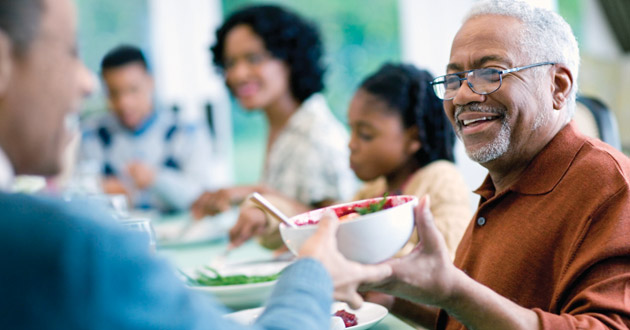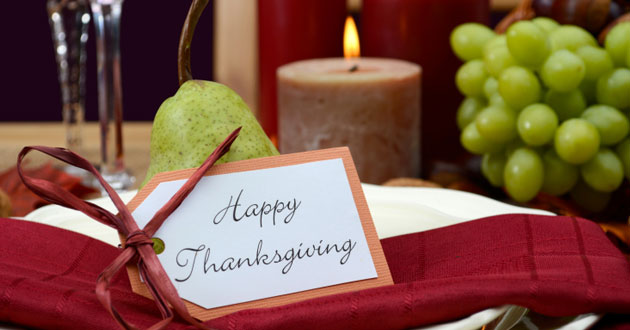Feasting on fellowship

When my grandmother reached her 90s, she lived in an assisted-living center outside of Chicago. In those latter years, she lost her grip on the present. She didn’t know any of us when we visited.
The last time I saw her was when I had a layover on a flight from the West Coast to the East Coast. For years I had routed my flights through Chicago so that I could take a cab or have a relative pick me up and take me to see her for a few hours. On this particular trip she seemed to recognize me as someone from her past, but couldn’t really muster my identity.
Regardless of who I was, her first words were, “Have you eaten?”
This was a typical question from her.
My grandparents knew the value of eating together. My parents, brothers and I lived with them when I was very young. On Sundays in particular, my grandmother prepared more food than the family warranted, with the idea that she might find a visitor or lonely person at church that day and invite that person home.
My mom continued the practice when we lived in our own house later. If she knew that someone was alone, or was going through a difficult time, or was from out of town studying at a local university, another place was set at the table. We even drove to various parts of the city to bring the person to our house for that meal.
Togetherness at mealtime was important. There was no agenda other than togetherness.
We experienced something around those tables. Sharing the food and drink, passing it to one another, serving it to one another, sometimes spilling it on one another, and in extreme cases, throwing it at one another, meant something. The shared experience meant that we were more than just our individual selves. Around that table we were something bigger. We were a collective group. We had hunger in common and the food brought us together.
Theologian John Shea said that church is where we “gather the folks, tell the stories, break the bread.” So I guess we had church around the table.
That day I visited my grandmother, I assured her that I had eaten. She asked the same question maybe 20 more times while I was there. We visited for a while, and I got her singing some hymns. Her alto voice was still strong. At one point she stopped abruptly and said, “Do we have enough food for tonight?”
“Who are we expecting to come over?” I asked.
“Everyone!” she said.
“What will we need?”
“Make a list—we’ll need hamburger, chips, buns, lettuce, tomatoes.”
I humored her by nodding.
“You’re not writing this down,” she said.
I got a pen and paper and took notes. I figured her delusion would pass soon, so I stayed in the chair and smiled at her.
“Why are you still here?”
“I thought I’d talk to you a while.”
“GO!” She pointed at the door.
So I got up and left the room. I walked around for about 10 minutes, stopped in the TV room and watched a little Wheel of Fortune, and returned to the room. She was sound asleep.
Even right up to the end, having a meal together was on her mind. Some of her best moments in life were experienced while sharing a meal with others.
What do we experience by eating together? We share the host’s hospitality. And hospitality is at the core of our spiritual life. Most of our day is spent experiencing how we are different from one another— our race, economic status, education, language, heritage, politics. Around the table, we experience what we have in common—hunger and a need for renewal.
Author Kathleen Norris said, “The bread of the Eucharist is called the ‘host’ after all, and for good reason.”
May our hunger be quenched together.
— by Dean Nelson
Nelson directs the journalism program at Point Loma Nazarene University in San Diego. His book on seeing God in everyday life is God Hides in Plain Sight: How to See the Sacred in a Chaotic World.





